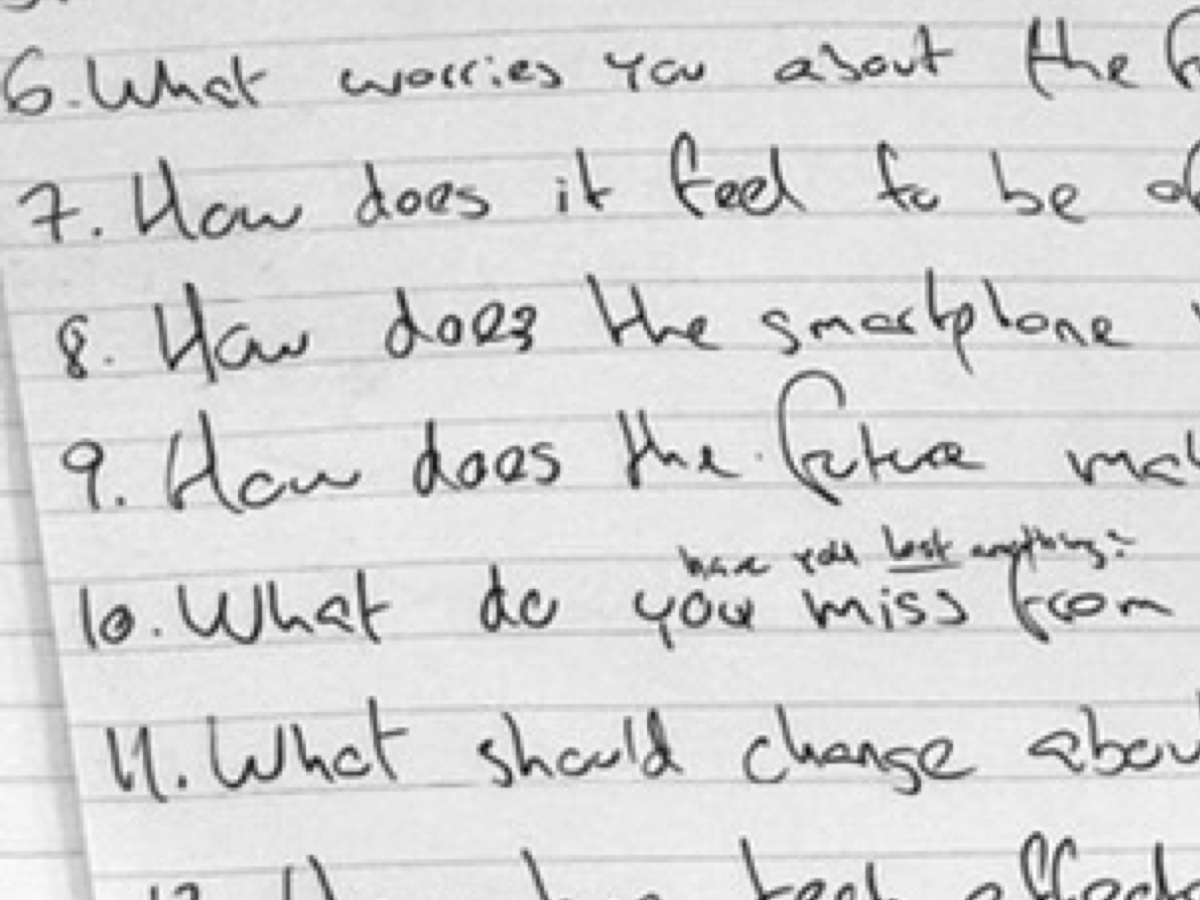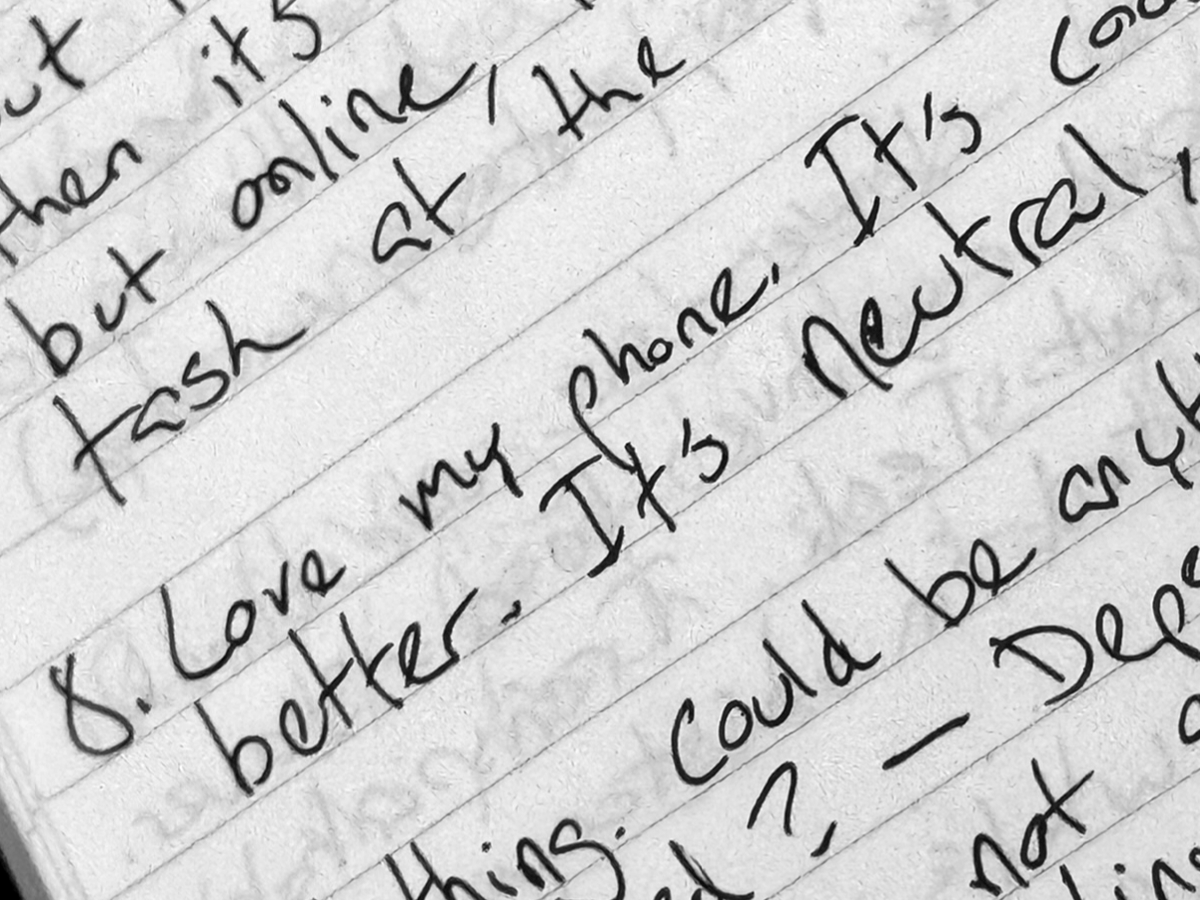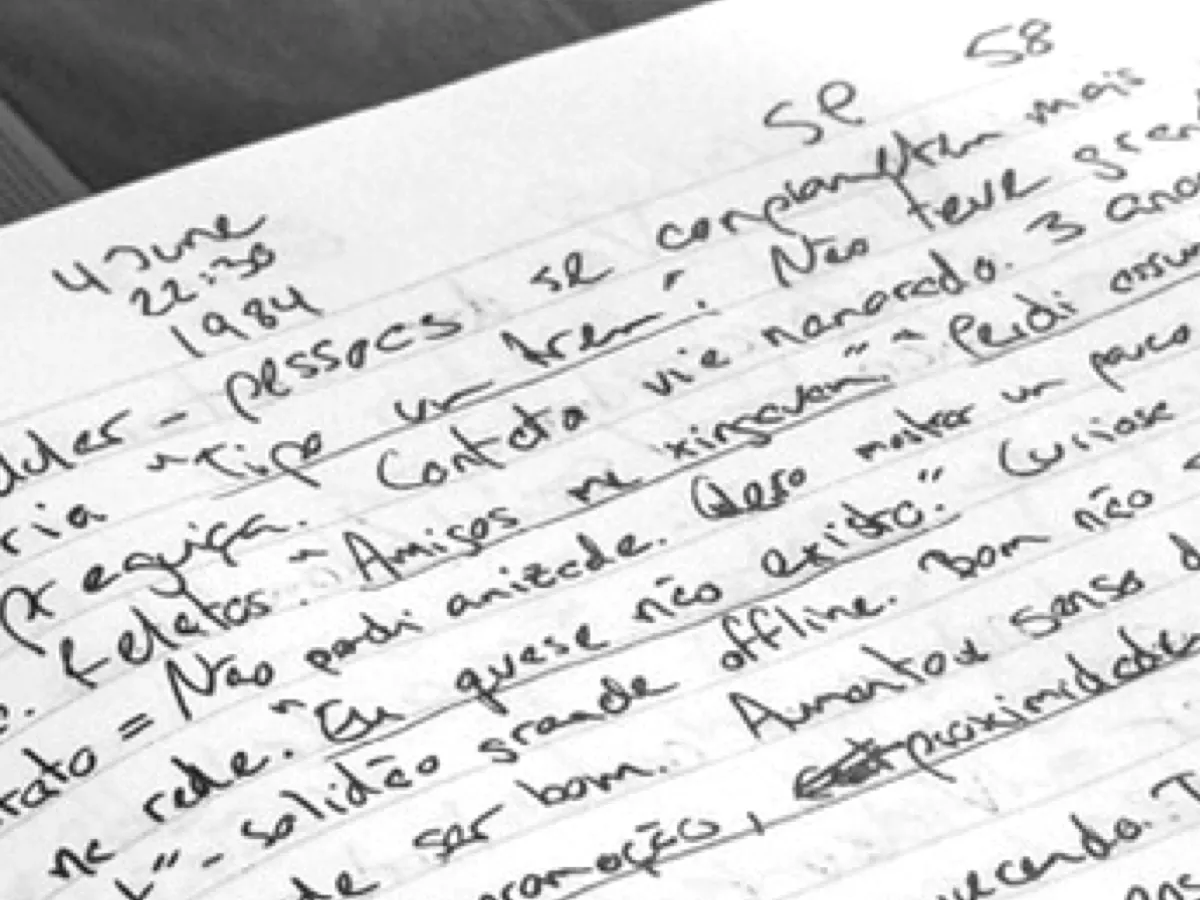In April 2019 I asked a friend if they felt the world is speeding up. Without a moment of hesitation I was told: Yes – of course it’s speeding up!
The question felt intuitive. I frequently ask people about living in the present and how they are affected by technological change.
What differed that Friday was my newly found desire of documenting the answer, along with the dozen or so additional questions that followed:
How can technology serve you better?
By extending my human capabilities.
What is the first technology you remember using?
The tape recorder at age four.
More guided conversation than survey, the interview process has granted me a peek into the mind of 91 people, approximately one per day since early April 2019. Each conversation yields an new perspective, with patterns of perceptions and behaviors manifesting across time and space. The same questions posed over and over again – to a stranger in the park – at the end of a business meeting – or as icebreaker on a first date. Each session bringing insight into how we perceive the future, and how we feel about the technology we engage with daily.
What I have found is (mostly) reassuring. Despite the majority feeling a sense of perpetual acceleration (and often highlighting negative consequences of excessive technology use), everyone I speak with displays remarkable awareness of their predicament, and actively employ techniques for containing its effects on their lives.
This directly contradicts my own previous bias of masses unaware of technology affecting them, replacing perceived victimhood with a cautions sense of empowerment. The degree of awareness varies, as does the need for resistance – but every subject so far has displayed cognizance of this ambivalent relationship.
Countless patterns have emerged from the sessions. Having spoken to self-proclaimed smartphone addicts as well as digital minimalists — software developers and users — airline pilots, new parents, nomads, artists, executives, entrepreneurs, anthropologists, activists, janitors, government officials and several students and academics.
Respondents represent an as diverse as possible array of characteristics, but are limited to the people I meet or teleconference with. Young and old (aging from 15 to 75) and global. Most are urban smartphone owners, representing a possibly biased perspective – though I expect to remedy this by continuing the interview process indefinitely.
My intent with the interviews is uncovering the impressions technology leaves on us. How it shapes our perception of the world, how it affects our interpersonal relationships, and how we resist that which seems inevitable. We are all changed by it, and collectively partake in the perpetual creation of our technological environment. By downloading, registering and engaging with certain technologies (and not others), we determine the shape of the future.
I am trying to consolidate the findings through essays for each questions, linked below.
Questions
- Does it feel like the world is speeding up?
- Why?
- How could technology serve you better?
- How do you curb technology use?
- What is the first technology you remember using?
- What worries you about the future?
- How does it feel like to be offline?
- How does the smartphone make you feel?
- How does the future make you feel?
- What do you miss from using technology?
- What should change about technology?
- How has technology affected your relationships?
- When was the last time you switched off your phone?
- Does the Internet forget?
- Which technology makes you feel most connected to others?



